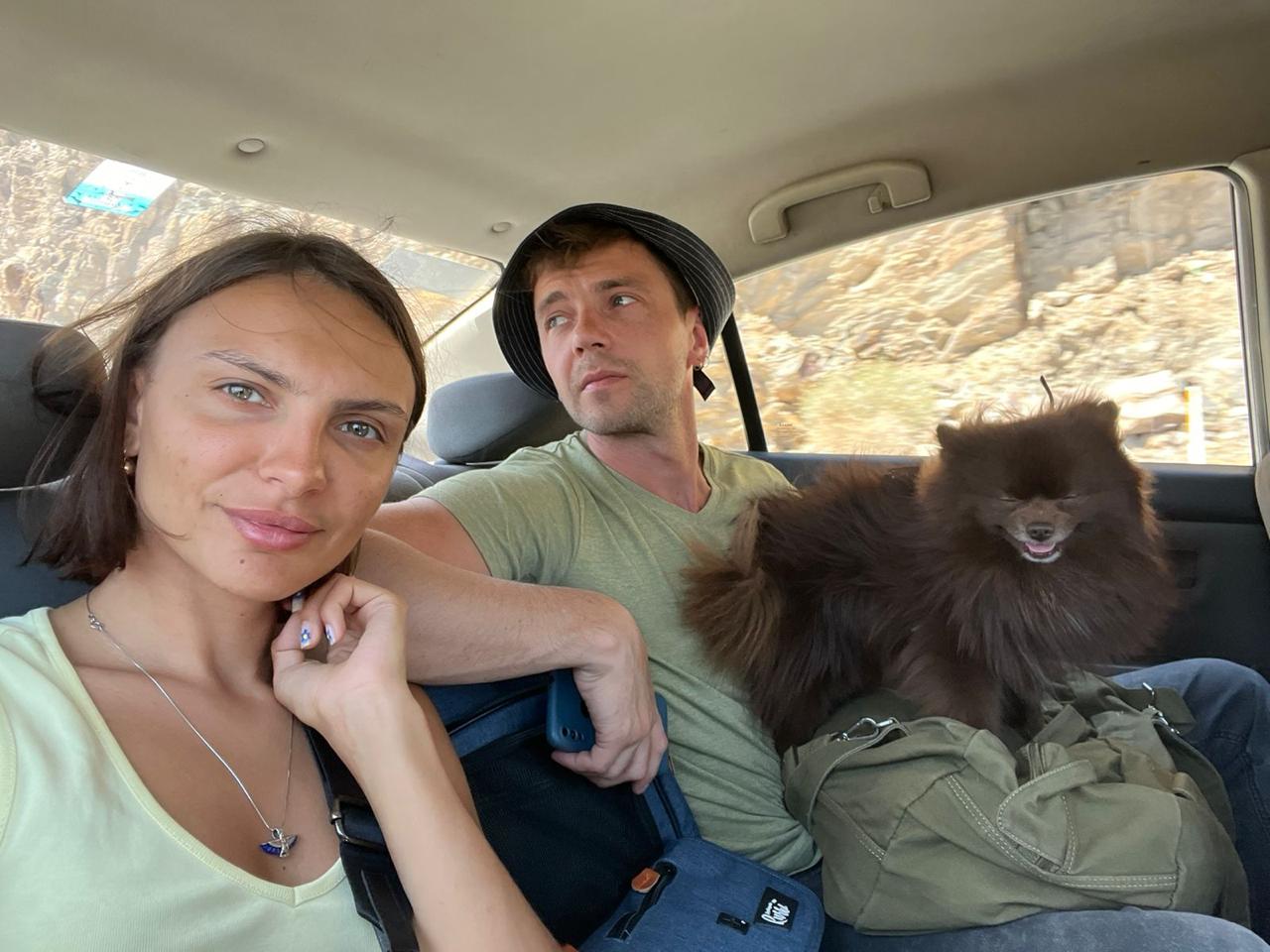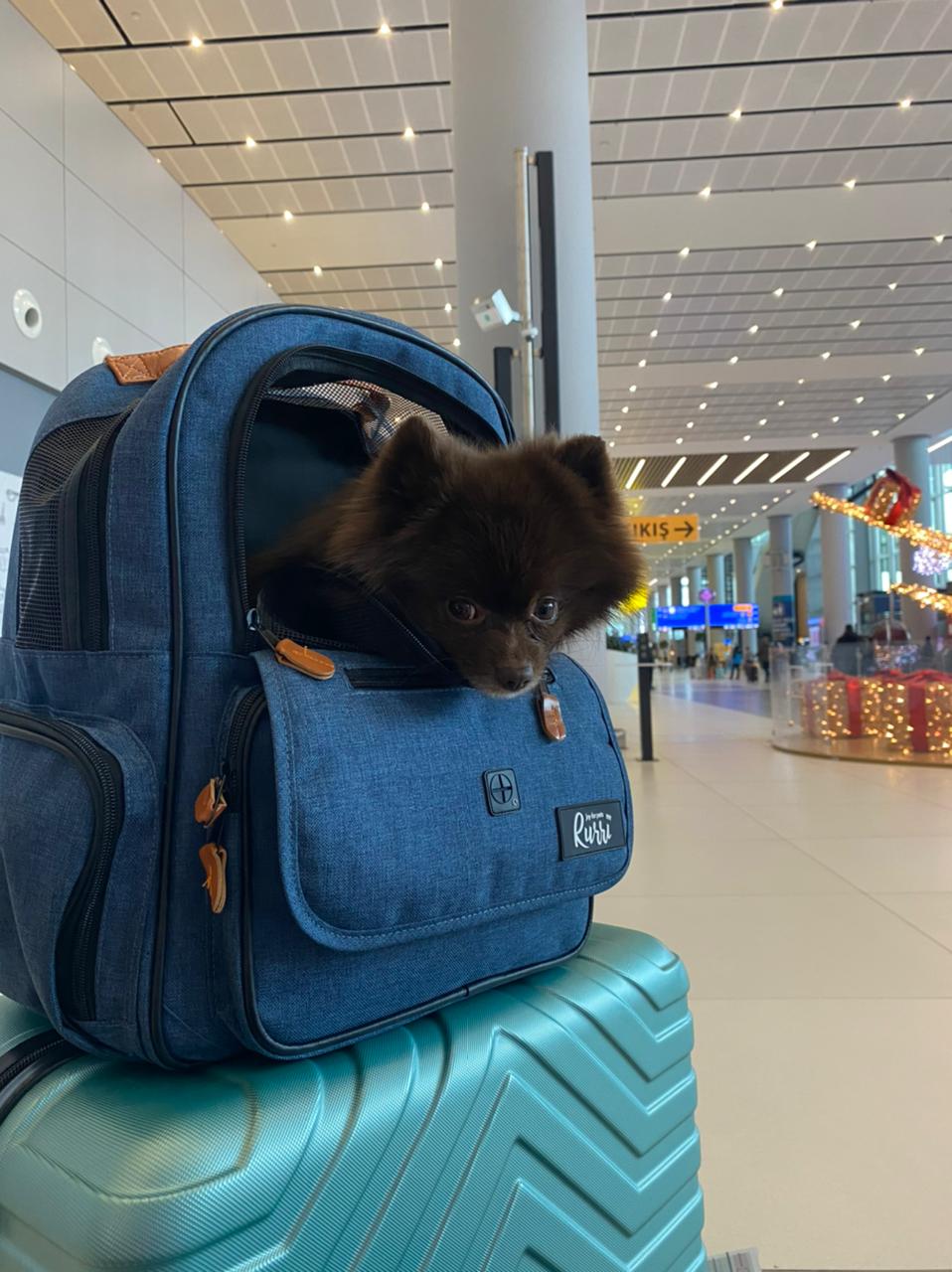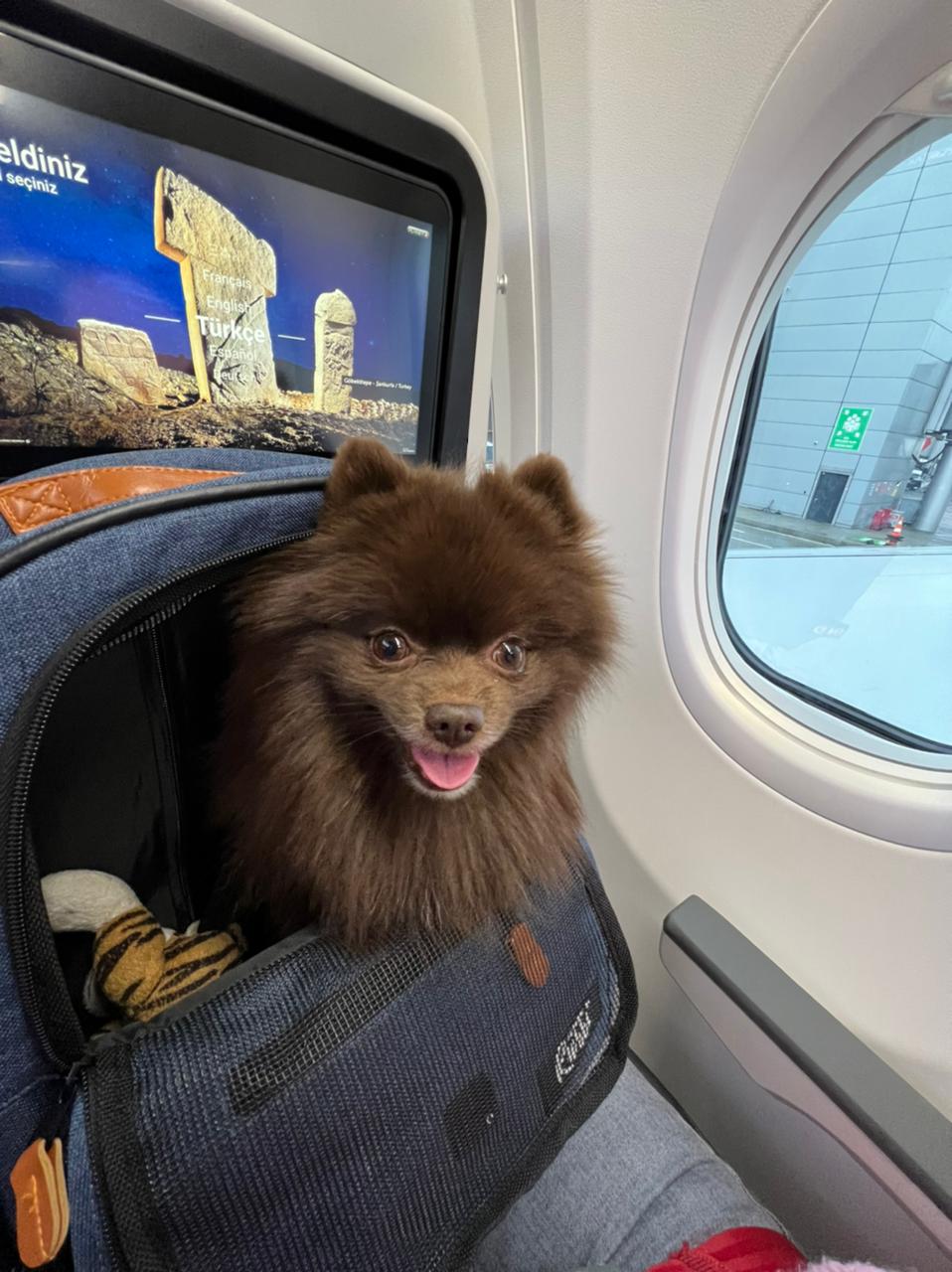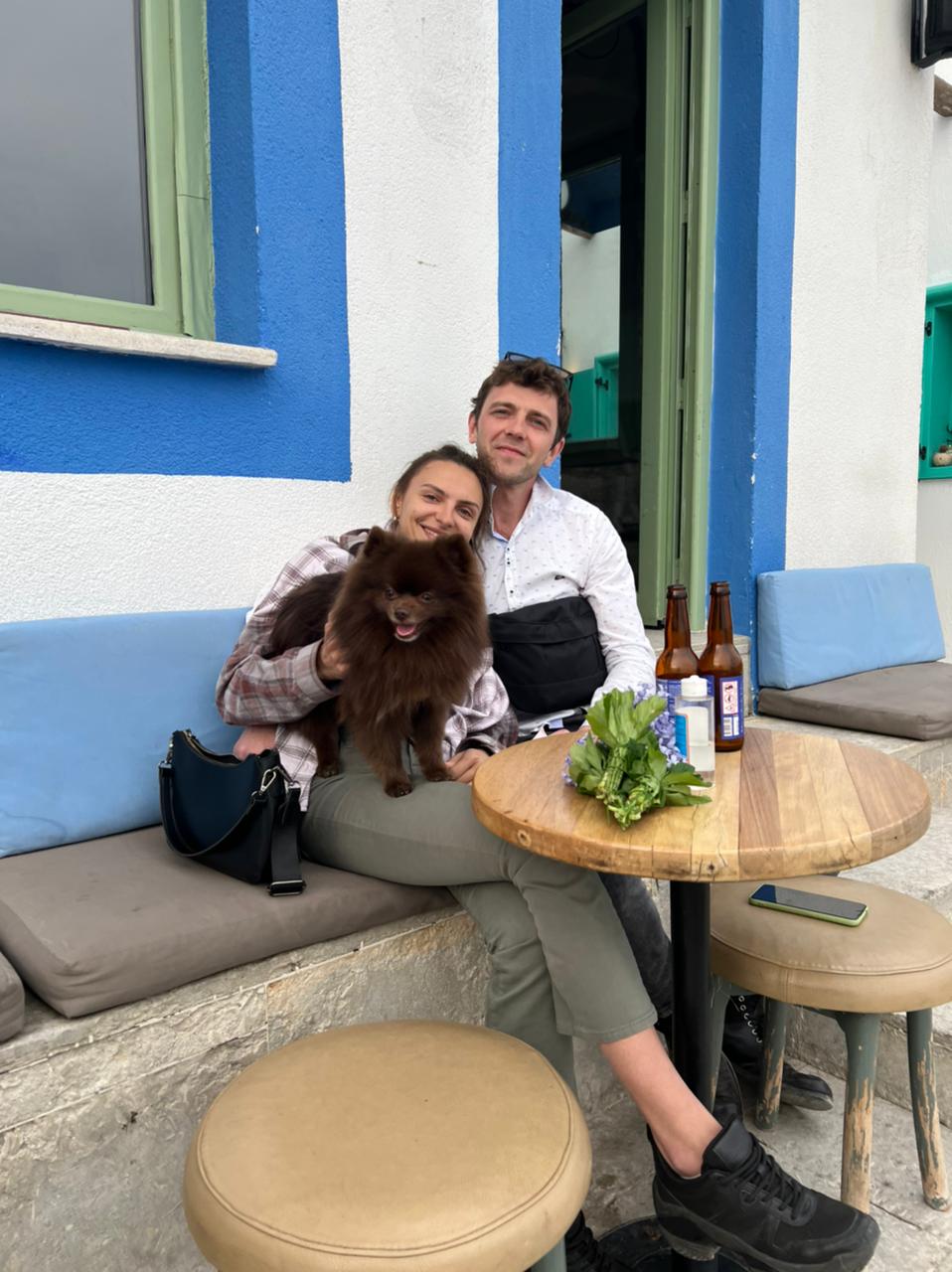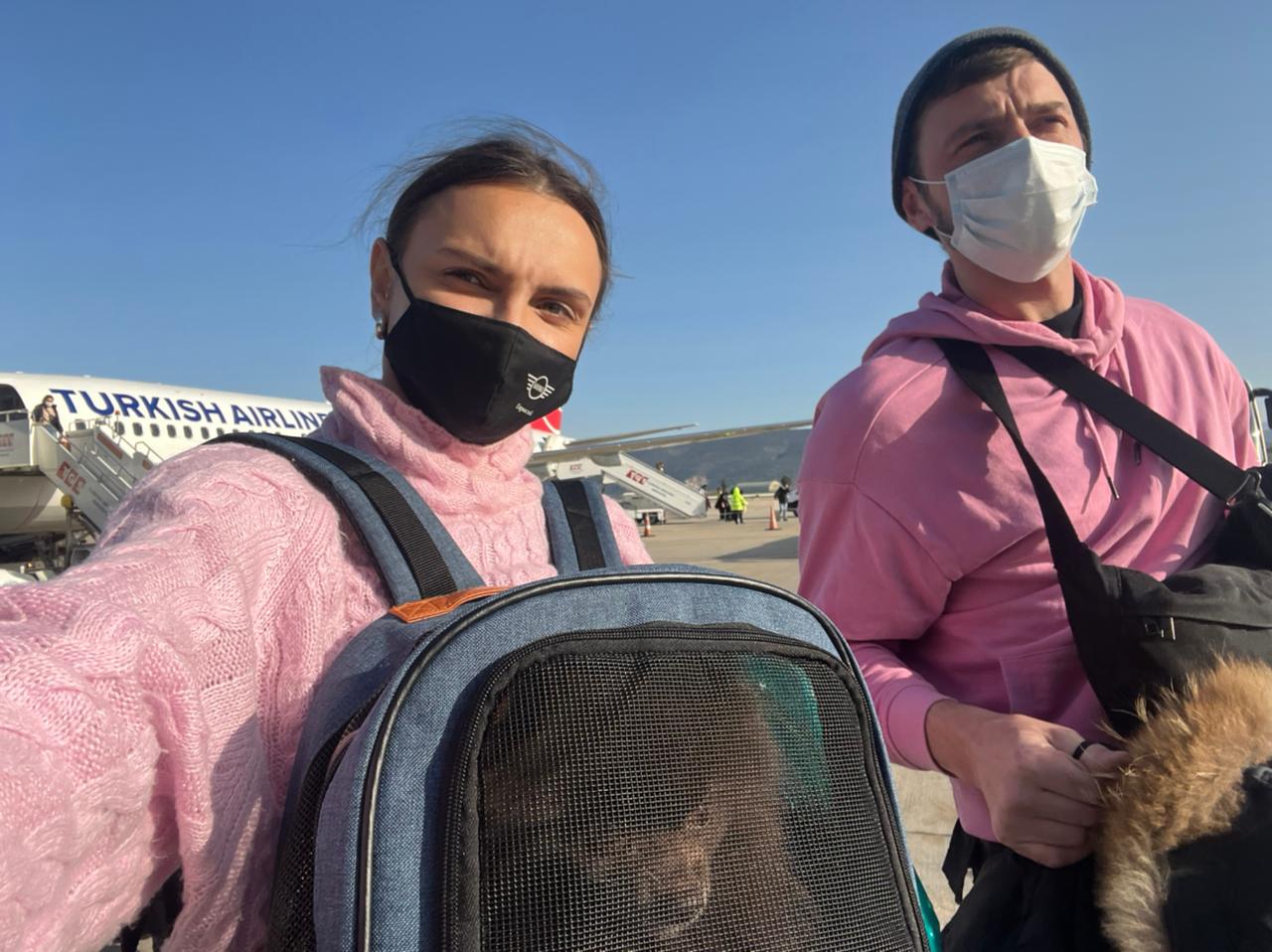AUSTIN, Texas — A married couple that fled Russia after being jailed for protesting the Ukraine invasion thought they could finally rest when they set foot on U.S. soil after successfully escaping. But their joyous arrival was short-lived when they were jailed by U.S. Immigration and Customs Enforcement for nearly 40 days and forced to abandon their beloved dog at the border, a German spitz named Lord Louis.
Russian citizens Nikolai Doinikov, 36, and his wife, Albina Pogorelova, 28, crossed the U.S.-Mexico border into Yuma, Arizona, in late April and immediately claimed political asylum. Despite having legal and health documents for the dog, the Border Patrol said they would have to abandon the animal there.
“We have no children,” Doinikov told the Washington Examiner in an interview. “He’s like a baby for us. We’re just going crazy. When I open my eyes in the morning, I see that my wife [is] just crying. She [cries] all day. I don’t know what to do.”
As more migrants from around the world travel to the southern border with their pets in hopes of starting anew in the United States, overworked Border Patrol agents are dealing with the unexpected fallout: Humans are detained, and their pets are left behind to fend for themselves.
MIGRANT ENCOUNTERS AT THE SOUTHERN BORDER HIT ANOTHER ALL-TIME HIGH UNDER BIDEN
Despite this growing pet problem, the Border Patrol has no policy for what to do with animals when the owner is taken into custody and has no estimate of how many animals its agents must force people to abandon each day because it does not track animal encounters.
The ordeal has left animal lovers such as Annette Lagunas, executive director for the Humane Society of Yuma, scrambling to find a solution. Lagunas’s shelter is regularly at capacity, but she wants to help. The issue is that Border Patrol does not ask for help, so her staff does not know that an animal has been left behind.
“It’s not fair to leave these owned, completely domesticated, relying-on-somebody animals just alongside … the road,” Lagunas said.
As illegal migration encounters rose in May to the highest level ever recorded, officials in border towns such as Eagle Pass, Texas, and Yuma are concerned they could see more animals forcibly abandoned in triple-digit temperatures.
The Border Patrol’s parent agency, U.S. Customs and Border Protection, did not respond to a request for comment on whether it will roll out a policy for how agents should handle pets.
Lisett Sanz, 33, experienced a similar situation after she fled her home in Venezuela and crossed the border into Eagle Pass. Sanz only got her dog back because a Washington Examiner journalist on the scene stepped in after she was taken away and her dog was left by the Rio Grande.
Sanz walked through the Darien Gap, reputedly the most dangerous jungle in the world and the only way to access Central America by land from South America. She carried her small white dog, Chiki, with help from her uncle and another woman with whom she was traveling.
On April 23, Sanz crossed the border and was taken into custody. The federal agents and Texas National Guard forced her to leave the dog at the river, then drove Sanz to a station for processing.
“The feds are saying, ‘Well, the animals are not our responsibility.’ Well, guess what? It comes in a package. You cannot just discard the animal out there and make it my problem,” said Eagle Pass Police Chief Federico Garza Jr. “It’s all of our problem.”
Right after they crossed the river
The girl was with a family of 10 who had traveled here from Venezuela pic.twitter.com/Pc4VWNypMe
— Anna Giaritelli (@Anna_Giaritelli) April 23, 2022
The dog was rescued and eventually reunited with its owner thanks to the Eagle Pass Police Department and Sandy Tovar, who runs an animal rescue organization called the Buddy Foundation.
Sanz spent two days in federal custody after crossing the border. Upon her release, she departed Eagle Pass for Atlanta. Her dog Chiki was not cleared to travel. Tovar took Chiki in for nearly a month, then drove the dog 1,100 miles to Sanz. The transport and immunizations cost Tovar’s organization $700. More often than not, she does not get reimbursed by those she helps, but she feels strongly about helping out.
“The thought of these border pups making the long trip from their home to the United States with their families is heartbreaking,” Tovar said. “We can’t even begin to imagine the trauma of being separated at the border from the only family they know after all they’ve already endured.”
Doinikov and Pogorelova thought they had all the necessary documentation to travel across borders when they fled Russia in March. The two left in a hurry after being released from jail for speaking out against Russian President Vladimir Putin’s invasion of Ukraine, Doinikov said in a WhatsApp interview with the Washington Examiner.
On March 11, the couple fled to Turkey with Lord Louis. They stayed one month and then flew to Mexico, where they did not need a visa to enter the country. In Tijuana, across the border from San Diego, they had planned to seek asylum at the port of entry but were barred from doing so. While the Biden administration has allowed Ukrainians to seek asylum and be released into the U.S. since March, it has not made the same exception for Russians.
They learned some migrants were choosing to cross illegally between the ports of entry on the California-Arizona border. They chose to follow suit and then seek asylum in the U.S., paying taxi drivers to drive them to an area where there is a gap in the border wall. After crossing into the U.S. near Yuma on April 30, they were taken into custody and ordered to leave the dog behind.
A bus driver who was privately contracted by the Border Patrol and on-site that night volunteered to take the dog and return it when the couple was released, typically in a couple of days.
That was not the case. Rather than be discharged the following day, they were separated in Border Patrol custody, then transferred to ICE facilities in Arizona and Georgia and detained for nearly 40 days. They were released by ICE on June 7 after posting bond.
The couple returned to Yuma intent on finding their dog. They searched for one week, then began contacting journalists for help. The two showed up at Border Patrol and other facilities in Yuma, but no one gave them answers.
A Washington Examiner journalist responded to the couple’s request and pressed the Border Patrol for answers.
CLICK HERE TO READ MORE FROM THE WASHINGTON EXAMINER
On Wednesday night, the couple sent a text saying that the Border Patrol had located the dog and that it was ready to be picked up at the station.
A video of the reunion showed the couple embracing, with Lord Louis in the middle. Pogorelova cried, this time for joy.
A Russian couple who fled after being jailed for protesting Putin’s invasion of Ukraine crossed the U.S. border and claimed asylum on April 30, were forced to leave their beloved dog behind and jailed by ICE nearly 40 days.
They just found their dog, Lord Louis. Story coming! pic.twitter.com/T7AM7kO5sT
— Anna Giaritelli (@Anna_Giaritelli) June 16, 2022
